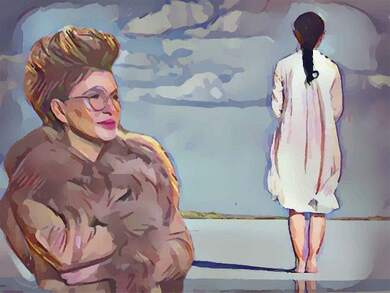Part 1 - A guide for parents and other caregiversIt’s been said that there is only one stage of life more difficult than being a teenager… and that’s being the parent of one! Before we look at this fascinating stage of life, let’s get an understanding of where the word ‘adolescent’ came from… A check of the dictionary revealed it has Latin origins with a variety of meanings:
While most of us would know that the stage of adolescence is concerned with ‘growing up’… I wonder how many would know that it also refers to being ‘nourished’. Did you? I’ll return to this later… When is adolescence?Typically, most people consider adolescence to be between the ages of about 12 or 13 and 18, or perhaps 19. Once upon a time (sounds like a nursery rhyme!)…we believed that adolescence ended in late teenage years, or perhaps, at the latest, around the age of 20. It was at that point that we believed the ‘adolescent’ brain finished developing! But now, research through techniques such as Functional Magnetic Resonance Imaging (a way of measuring brain activity through the levels of oxygen in the brain) we know that the brain doesn’t finish developing until around the mid-20s! and even then there can be much ‘flexibility’ (called plasticity) after that when one part of the brain may compensate for another. It’s a fascinating area of research… But, back to adolescence… A ‘good’…read healthy and productive…way of thinking about this stage of life is that there are certain tasks that an adolescent needs to achieve…that must be achieved to reach the (healthy) stage of adulthood. Let’s back-step a little… What’s the stage before adolescence? Of course…it’s childhood! This will be the topic of another Newsletter… but for now, the primary purpose of childhood is for children to develop a sense of self, or identity…within the family! Who am I amongst these others who surround me so closely? How do I fit in this group of people? In childhood, a sense of self, or identity, derives its meaning from the child’s place in the family… Not so in adolescence… The tasks of adolescence are for the young person to discover who she or he is in the big wide world…the questions here will be something like: Who am I in society? Who am I within my peer group? How do I fit in my culture? How do I fit within the world? From this you can see that there is a movement of the adolescent from the family to the society. Previously the young person only had to navigate his or her place within the family! Now…she or he has to navigate a place in the world! This is a monumental task indeed! We call this the task of Identity within the world. It is the equivalent of the baby bird being nudged from the nest to fly free of the security of its parents… Humans have a much longer period of navigation in this regard…and this becomes sooooo tricky for many of us. If we, parents, let go too early, our children ‘grow up too soon’, and may even develop a ‘sense of entitlement’ that later gets them into trouble; if we let go too late, our children become dependent and remain connected to mum or dad with an inability to really become independent…and later, interdependent in an intimate relationship! Oh, and btw… do you know what interdepdendence means…? More about this another time… The adolescent stage of development is indeed, fraught with danger! And…We haven’t yet talked about that subject rarely touched upon…sex! You see…adolescence is also the stage in which we develop our sexual identity…when young people feel and become sexual, sharing intimacy and love... Oh…but, as many of us as parents and caregivers might say…let’s leave that for another time… Come back next week for Part 2 of Surviving Adolescence! Steve Jobson Principal Psychologist
0 Comments
Your comment will be posted after it is approved.
Leave a Reply. |
Archives
April 2024
Topics & Authors
All
AuthorSteve Jobson |
At inSync for life, we acknowledge the Traditional Custodians of the land on which we work and live.
We recognise their continuing connection to land, water and community, and we pay respect to Elders past, present and emerging
We recognise their continuing connection to land, water and community, and we pay respect to Elders past, present and emerging
Copyright © inSync for life 2024


 RSS Feed
RSS Feed